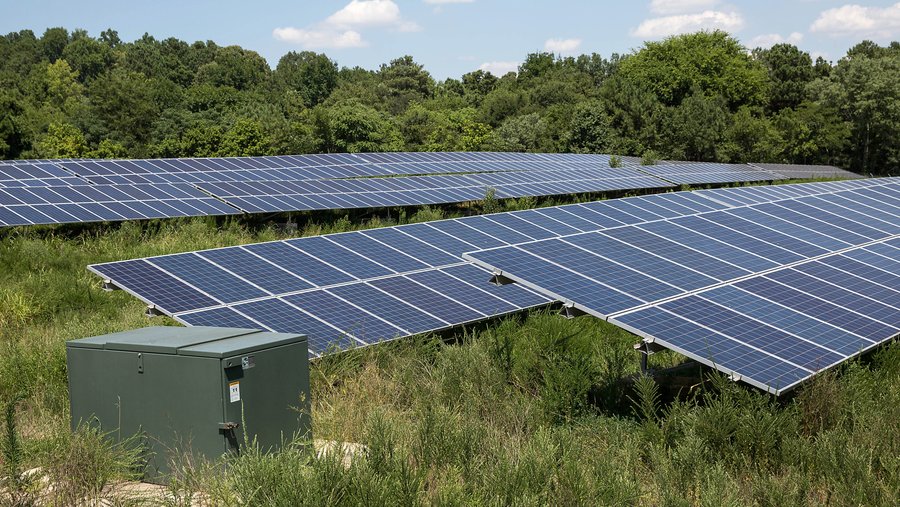Duke University is continuing its effort to become carbon neutral by 2024 by signing into a partnership with an Asheville-based solar developer for increased capacity at three new solar facilities planned for the state.
On Monday, Duke announced it has partnered with Pine Gate Renewables to build three new solar farms that are expected to be online by 2022 as part of Duke Energy’s Green Source Advantage program.
The university will buy 101 megawatts of solar capacity, which combined with other planned efforts, will result in a 69 percent reduction in carbon emissions by 2022 and a 73 percent reduction by 2024 compared to its 2007 baseline.
“This partnership is a key step toward carbon neutrality,” said Duke University President Vincent Price in a statement. “Duke is committed to building on our history of leadership in protecting the environment, a vitally important priority for our university -- and for humanity -- as we grapple with the challenges of climate change.”
In total, Duke's partnership with Pine Gate is expected to generate 235,000-240,000 megawatt-hours of energy each year – about 50 percent of Duke’s annual electricity needs.
The move is part of the university's 2009 Climate Action Plan, which hopes to reduce on-campus emissions by 84 percent by 2024.
To reduce on-campus carbon emissions, the university's larger plan calls for a variety of reduction strategies including changes in transportation. The newest deal, according to Duke, gives it access to 20 times more clean energy than Duke could build on campus under current energy regulations.
"We’ve been working on a large-scale solar power initiative for years, but it’s historically been impossible to do in North Carolina, given the regulatory environment,” said Tallman Trask, Duke’s executive vice president and its leader for sustainability efforts. “So it’s especially gratifying to get this done now. With the increased solar capacity and the elimination of coal from the steam plant, we can likely reach Duke’s carbon neutrality goal.”





